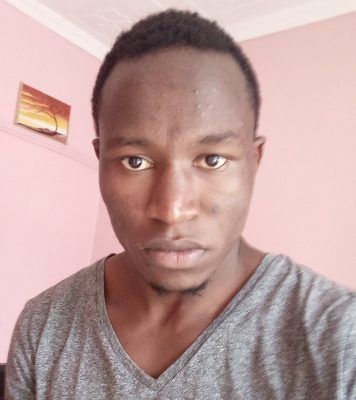If you went to school in the village, then you know that school is not just one of the things children do till they are old enough to be on their own. It is a small empire with the Board of Governors (BoG) at the top, teachers at the next level, parents, and then pupils at the low end of the pyramid.
With most villagers being subsistent farmers, teaching is a revered career. The teacher is revered as the shaper of our children’s future. And don’t you dare resist his ministrations. He knows best.
Unfortunately, some teachers just end up crushing the very futures they are entrusted with. This is the story of an education system that didn’t know better, and the teacher who didn’t know how to teach – and the life that this fatal combination ruined.
The uniformity construct
Uniforms, and the uniformity construct they encapsulate, are exactly what is wrong with our education system. Maybe it is a good idea to dress all alike, but that can be very confusing when we are all so different.
In the old education system, we forced children to conform, not just in their manner of dress, but also in how they are supposed to learn. This is why the competence-based curriculum is long overdue. But I am not here to talk about the CBC today. My article is about uniformity in dress, and what happens when the system encounters someone who is “different”.
So this is the story of a lost boy who grew up to become a lost man, still trying to figure out his place in the world decades later. It came to me from a retrospectively expected place – a bodaboda stand – but in the most unexpected of ways.
The lost boys generation
After a trip to nowhere, my bodaboda guy, his name is Mwangi, turns to me with a question.
“I heard that you are a writer?” My answer is in the affirmative, of course, to which Mwangi declares himself free for the next two hours and demands I sit down and listen to his story. I do so, somewhat amused but very much intrigued.
Mwangi fixes me a long pensive look, as if thinking about where to start.
“I know you think I am just a hooligan (translated) because you pass me at the bodaboda stand all the time.” He starts.
“But I had a great future ahead of me, right up to the point where I dropped out of school in class six.”
Mwangi then starts to tell me about how he went to a primary school in Muranga, in what was then the Central province of Kenya. Many fond memories of free-flowing coffee money before Moi decided to “” – story for another day.
As I settle for what turns out to be a fantastic story – Mwangi is a natural storyteller – I wonder just how long he has been waiting to tell this story. The layers of jackets is protection against the cold, but in removing them he turns from my bodaboda guy to a real man named Mwangi, who then forms this image of ‘the lost-boy generation’ of our education system.
Let’s all bully the different kid
In an institution that is defined by and favors uniformity above all else, standing out can be one’s undoing. In his own words, Mwangi was “a tiny Mukurinu boy.” The size was no problem, but the turban he wore to school every day would prove to be very much so.
While all he wanted to do was learn and do something meaningful with his life – prove himself to his beloved mama – the turban made it impossible to stay focused in class. He had to fight bullies at every turn. But worse still, his bullies were not just his fellow pupils either.
“I still remember his name – Mr. Kiriogo!” He announces with much feeling. “That teacher hated me and my turban so much; I had to resort to running before his lessons.”
“Maybe you were just a naughty boy.” I jest.
Mwangi agrees that he was a free-spirited boy. He put himself into his own fair share of problems, he admits. But at that age, who didn’t?
The problem with Mr. Kiriogo was that he brought village beefs to class. As social pariahs, Mwangi’s family was used to being pointed at, laughed at, even hated. But the teacher who boomed into class and immediately started insulting his ‘crazy’ family, Mr. Kiriogo took it too far.
This gave him a notorious reputation of always being punished, which then cemented the picture of a rogue boy. “Many of my punishment was not consistent with the severity of my transgressions.” He insists.
Seng’enge ni Ng’ombe - A broken system
To drive that point home, Mwangi reminds me of an absurdity I also observed in my school – the gate to nowhere. The massive (often beautifully decorated) pillar gate, very appropriately built at the entrance to unfenced school property.
It is the only gateway to learning, and woe unto you if you don’t use it on your way in or out. If you are caught, your parents will have to pay for it – with a roll of barbed wire.
“That is what did it in for me.” Mwangi informs me.
He was caught in one such mishap and raised high hell at home when he reported the news and his exorbitant punishment. At a time when the coffee business that central province farmers like his father depended on had collapsed, the situation was even more dire.
“There was no money. And there was no food either.”
Mwangi recounts how he used to sit in class on an empty stomach and fantasize about food. “Fee arrears, bullies, beef with teachers, now this?” He felt he didn’t belong in a classroom anymore.
In that final disciplinary hearing, the beef with Mr. Kiriogo would be his undoing. “He came to the meeting and ensured that there would be no leniency for me, even on financial grounds.” With his record of getting in fights, his chances were already pretty slim.
It wouldn’t have been such a big deal if he could just transfer to a new school. But with his family impoverished and with younger siblings to take care of, Mwangi accepted his fate - his schooling was at an end. It was time to be an adult now.
In the quiet that follows, I mention the recent stabbing of a teacher by a student in Kisii County. “I would never do it, but I understand the feeling of wanting to kill your own teacher.” On that last meeting, Mwangi admits, he contemplated it.
But he settled for the less fatal route of pelting Mr. Kiriogo with unripe avocado a few months after leaving school. At the tender age of 13, Mwangi had no choice but to join the world of hustling. It has not been going as well as he had hoped.
Relinquished dreams
“When I was younger, I thought I was going to do something big and change the world, you know?” He doesn’t wear the turban anymore, but when he did, he was very serious about his God. A lot of the fights he got into had been defending himself from what can only be called religious bullying. Little kids snatching out his turban, calling him mean names.
“Whatever happened to turning the other cheek?” I can’t help but ask.
“Aaargh.” He replies. It’s the sound of frustration I know too well. When mistakes were made so long ago but you still can’t escape the trap.
Mwangi did not proceed with his education long enough to figure out what he wanted to do with his life. Fate and fortune conspired to kick him out of school before that could happen. Out here, he’s had to do whatever he needs to do to place food on the table.
Today he is a bodaboda operator, last year he was working at a farm. But he feels there is no future in it. “I am just escorting the sun from East to West now – marking time.” He finishes his story.
“Surely you can still figure it out? Go for it? It’s never too late, after all…” I, the forever optimist, ask.
But nah, Mwangi has too many responsibilities now. He has a family to provide for, a mother to care for, and siblings to nurture. When ‘real’ life starts, expectations crumble. Life has a way of throwing everything askew.
Storytime is over now; he has to go back to working his number at the bodaboda shed. It’s now up to me to tell his story, because that is all there is left. Regrets, lost dreams, and a desperate plead to do much better for future generations. So help us God.
Side Note
The idea that the late former President, Daniel Arap Moi weaponized poverty is a claim I have heard from many of my Central Kenya friends. Apparently, Moi did a number on them, silently, back in the 80-90s. There is scant information, of course, but enough murmurings in scholastic circles to make it a very interesting question about African politics. Why do we do it to ourselves?





